Breaking
There is no democracy in Nigeria, only civilian govt – Idongesit Nkanang

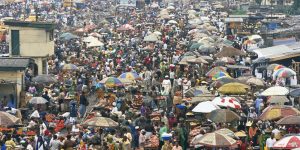
Air Commodore Idongesit Nkanang (Rtd.) was the first indigenous Military Administrator of Akwa Ibom State and National Chairman, Pan Niger Delta Forum, PANDEF. In a chat with Lovina Anthony in Uyo, Nkanang gave an insight on how Nigeria had fared in its 21 years of unbroken democracy. He gives reasons why there is the need for restructuring. He speaks on marginalisation in the Niger Delta and the urgency with regard to signing the electoral bill into law.
Excerpts:
D.P: How do you rate 21 years of unbroken democracy in Nigeria?
My rating is that Nigerians are ready for democracy. Nigerians have been ready for democracy because they saw the yoke with the colonial masters and when they had independence, they all embraced democracy. Unfortunately, the military came in and democracy was thwarted. They saw the pains of dictatorship, so when democracy came back, people were ready for it, that was why Nigeria had unbroken chain of democracy for 21 years. However, I can say the tenets of democracy have not been upheld by successive governments. Rather, they still have the dictatorship, unitary system of government and I’m afraid these traits do not go together with democracy. I will describe democracy for the past 21 years in Nigeria as 21 years of having government where civilians have been in-charge not necessarily democracy in the real sense because in democracy, rule of law must prevail, but we have seen breaches on the side of the managers so that is why we are where we are today.
D.P: President Mohammadu Buhari gave a speech marking the democracy day, was there anything you had expected but was not contained in the speech?
We have the electoral bill that has not been signed into law, and we have elections coming up in Edo and Ondo States. That means that we are still going to use the old one which gave room for rigging and other electoral malpractices. The bill the President used for campaigns in 2015. Five years after, he is still withholding assent, even though there was enough time for the bill to be signed into law, yet nothing of such was there.
That is to show you that the leaders are not ready for democracy. They are living in denial. They know what the truth is, but simply don’t want to do it. They enjoy the skewed system which help them to amass power and do things the way they want to do, but I tell you that these things are not enduring, at some points, they will give way.
D.P: One of the things you mentioned as very important in democracy is the constitution; are you not worried that no constitution has been written by civilians?
Let us be very honest and very clear here, no constitution has been written by soldiers either, bring out any of the constitution and tell me the people who sat down and wrote them.
D.P: (Cuts in) but they supervised them…
The way Nigeria has found itself, the honest thing to do is to say you are guilty. I am guilty, we are guilty and from there, we mend our ways. I tell you when Nigeria got her independence, the founding fathers knew what was good for the country. Awolowo suggested federal system of government, they saw ahead, the North was not ready for independence until they were assured that they will develop at their own pace, and they adopted federalism because of the multiplicity of our ethnic group and religion. They did well in the first republic before the military came in. There were true federalism and fiscal federalism in the first republic where 50% of whatever a region produced was for the development of that place, 30% sent to the distributable pool and 20% was used for the development of the federal capital which is Lagos; immediately the military came in, they suspended that and enacted a unification decree and it was that unification decree that took him, the then military president, Aguiyi Ironsi to his death because the North thought that the East wanted to lord over them. But when successive governments came in, they felt that the unitary system was good, one person will be at the centre and be a father Christmas that gives whatever he likes even if you don’t contribute. That is why they don’t want to restructure and not as if the president cannot do it.
Corruption kills the enthusiasm of people because you cannot contribute what you would have wanted to contribute. If we really want to curb corruption, unemployment should be addressed. The highest thing government can do is to make law. For instance, the punishment for armed robbery, kidnapping and murder is death sentence and there is nothing one can offer beyond his life, but has that stopped kidnapping, armed robbery? No! Legislation does not change the heart, but can restrain the heartless. What changes the heart is education and religion. When we capture those two, corruption will be reduced. If we don’t, no amount of legislation can stop corruption.
D.P: What is your message to Nigeria as it marked its democracy?
My message to Nigerians is that players are ready but the umpires are still in the dressing room. The umpires should come out of the dressing room and match this democracy forward in truth and sincerity. Let us be fair to ourselves. If you are running a government and you are favoring some groups and marginalizing others, that means democracy will be stifled. If you look at our coat of arms, we are talking about peace and progress, what about justice? If justice is in the system, peace will come, if peace is in the system, development that is progress will come. If you talk only about peace and progress, to actualize democracy will be difficult.
We have talked about NNPC board for a long time, what they just announced few days ago was a clear indication of marginalization. They announced board of nine, the Act itself talked about six, one from each geopolitical zone which to me is not right. When the contaminants and other environmental hazards come, will they share it among the zones? Some people are bearing these hazards while some are not feeling it. The last board had nine, six from the North and three from the South. South East did not even have one person even though there is oil in Imo and Abia. That is not fair, even the one they rearranged few days ago and gave five to the North and four to the South. They will say that Timipre Sylva is a member of the board. No, he is just the Minister of State for Petroleum Resources, the Minister is President Mohammadu Buhari. The highest Sylva can do is to stand in for Buhari if the later cannot make it to a meeting and that does not make him a member of the board. In fact, if you want to talk of Niger Delta marginalization, it will take a whole day.
D.P: What is the way forward in Nigeria?
Way forward is for both the players and the managers to imbibe the tenets of democracy. To be ready for the rule of law. The electoral bill should be signed into law and the justice system strengthened.
Breaking
Senator Ifeanyi Ubah dies at 52
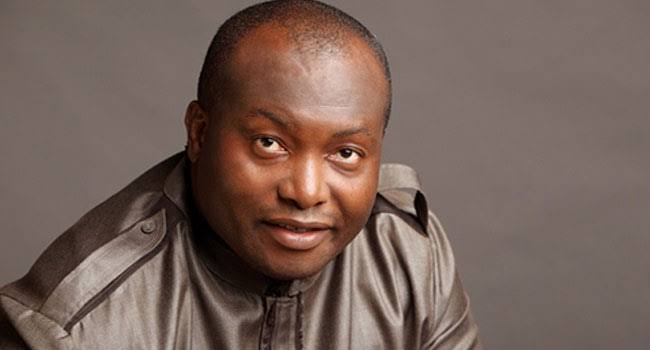
The Senator representing Anambra South in the National Assembly, Ifeanyi Ubah, is dead.
Ubah, who was the Chief Executive Officer of Capital Oil, was said to have died in a hotel in London, the United Kingdom, on Saturday.
He would have been 53 on September 3.
Senate spokesperson, Yemi Adaramodu, confirmed Ubah’s death to our correspondent on Saturday.
He said, “It’s confirmed, but I am sending an official statement soon.”
Ubah, who was re-elected into the 10th Senate under the Young Peoples Party, had last year defected to the All Progressive Congress.
In September 2022, Ubah escaped assassination when he was attacked by gunmen on his way to Nnewi in Enugwu-Ukwu in Anambra State.
Breaking
JUST IN: Edo state Assembly impeaches Deputy Governor Shaibu
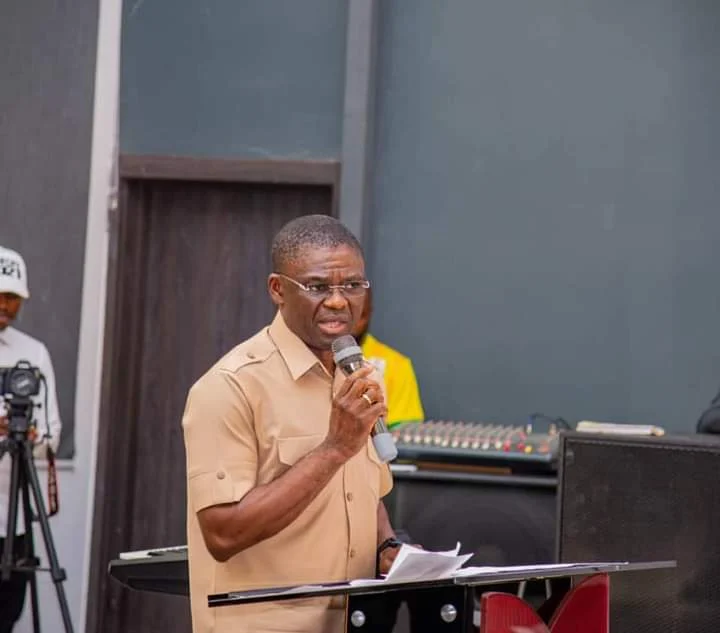
The Edo State House of Assembly, on Monday, impeached the state’s Deputy governor, Comrade Philip Shaibu.
The impeachment followed the adoption of the report of the seven-man investigative panel set up by the Assembly to probe allegations of misconduct against Shaibu.
Breaking
JUST IN: Olubadan of Ibadanland, Oba Lekan Balogun joins ancestors at 81
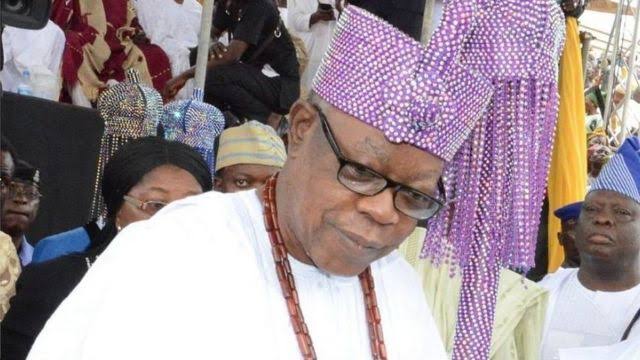
The Olubadan of Ibadanland, Oba Lekan Balogun has joined his ancestors after a brief illness.
He joined his ancestors at the age of 81.
It was gathered that the late monarch was taken to the hospital Wednesday morning having stayed indoor throughout Tuesday on account of slight malaria fever, though, he was hail and hearty on Monday during which he personally received few guests that paid him congratulatory visits on his second year anniversary on that day.
Making this announcement was the Baba-Kekere Olubadan and his younger brother, Dr Kola Balogun in a statement by the Personal Assistant (Media) to the late monarch, Oladele Ogunsola.
According to the statement, Dr. Balogun disclosed that Oba Balogun would be buried at his Aliiwo ancestral home by 4.00pm on Friday according to Islamic rites just as he said that the State Governor Seyi Makinde, though already verbally informed, would be formally notified early in the morning.
The late Olubadan was the first most educated to have emerged as Ibadan monarch, a British trained P.hd holder, a former university lecturer, former member of management staff of Shell British Petroleum, former gubernatorial candidate of the defunct Nigeria People’s Party, NPP, former Senator and a successful business man.
His last official outing was the Olubadan Advisory Council’s meeting which he presided over last Saturday where the decision to derobed Mogaji Akinsola, Olawale Oladoja was taken.
He however, on Tuesday instructed the Ekerin Olubadan, Oba Hamidu Ajibade to midwife a small committee to deliberate on last Friday’s decision on what should be the position of Ibadan Zone in the proposed newly reconstituted Oyo State Council of Obas and Chiefs.
The decision of the small committee was earlier on Thursday ratified by the Olubadan Advisory Council at a meeting presided over by Otun Olubadan and the former governor of Oyo State, High Chief Rashidi Ladoja and was to be taken to the late Oba Balogun for his signature Friday morning so as to meet the deadline for submission to the state Commissioner for Local Government and Chieftaincy Matters later in the day.
The late Olubadan is survived by wives, children and grandchildren.
Announcing the passage of the monarch, Governor Makinde, in a statement, stated that Olubadan, who joined his ancestors late Thursday evening at the University College Hospital, UCH, Ibadan, described him as an epitome of royal excellence and a great achiever, who made great marks on Ibadanland in just a little over two years of his reign.
He expressed his condolences to the Olubadan-in-Council, the Oyo State Traditional Council and the people of Ibadanland and Oyo State, praying to God to grant repose to the soul of the deceased monarch.
Makinde said: “With total submission to the will of God, I announce the passing unto glory of our father, His Imperial Majesty, Oba Dr. Mohood Lekan Balogun, Alli Okunmade II, the 42nd Olubadan of Ibadanland.
“A mighty Iroko has fallen; Oba Dr. Balogun has joined the ancestors.
“In Kabiyesi, Ibadanland had a cosmopolitan and well-experienced Olubadan, who made indelible marks on the sands of history and achieved greatly within a short while.
“On behalf of the Government and good People of Oyo State, I condole with the immediate family of the Oba Dr. Balogun, the Olubadan-in-Council, the Oyo State Traditional Council and the people of Ibadanland.
“It is my prayer that God grants repose to the soul of our late monarch.”
-

 News1 week ago
News1 week agoNaseni’s Executive Vice Chairman, Khalil Suleiman Halilu, Named 2024 Winner Of Daily Global Newspaper Conference Series Award For Science, Technology, Innovation, And Infrastructure
-

 Relationships1 week ago
Relationships1 week agoFour dating tips for single mum
-

 Relationships5 days ago
Relationships5 days ago‘I wish I met you before the wrong person’ – says Portable’s baby mama, Honey Berry, as she flaunts new lover
-
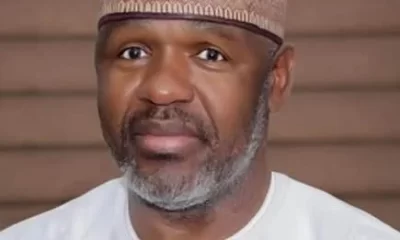
 Politics1 week ago
Politics1 week agoIbrahim Kashim resigns as Bauchi SSG
-

 Entertainment1 week ago
Entertainment1 week agoApostle Femi Lazarus, others top Spotify most streamed podcasts in Nigeria, Kenya, South Africa
-
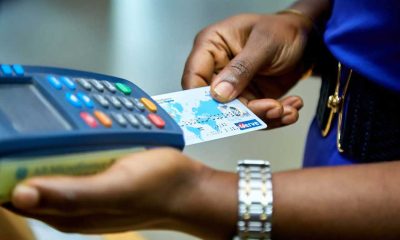
 Business4 days ago
Business4 days agoPoS operators increase withdrawal charges, blame electronic levy, cash scarcity
-

 News6 days ago
News6 days agoLagos state government shuts Lord’s Chosen Church, businesses across Lekki, VI, others over noise, environmental infractions
-
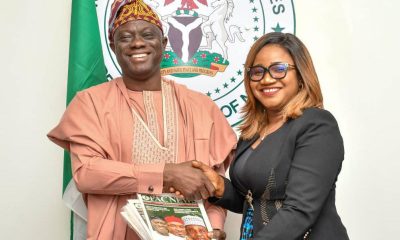
 Politics1 week ago
Politics1 week agoRep seeks increased participation of women in politics


















